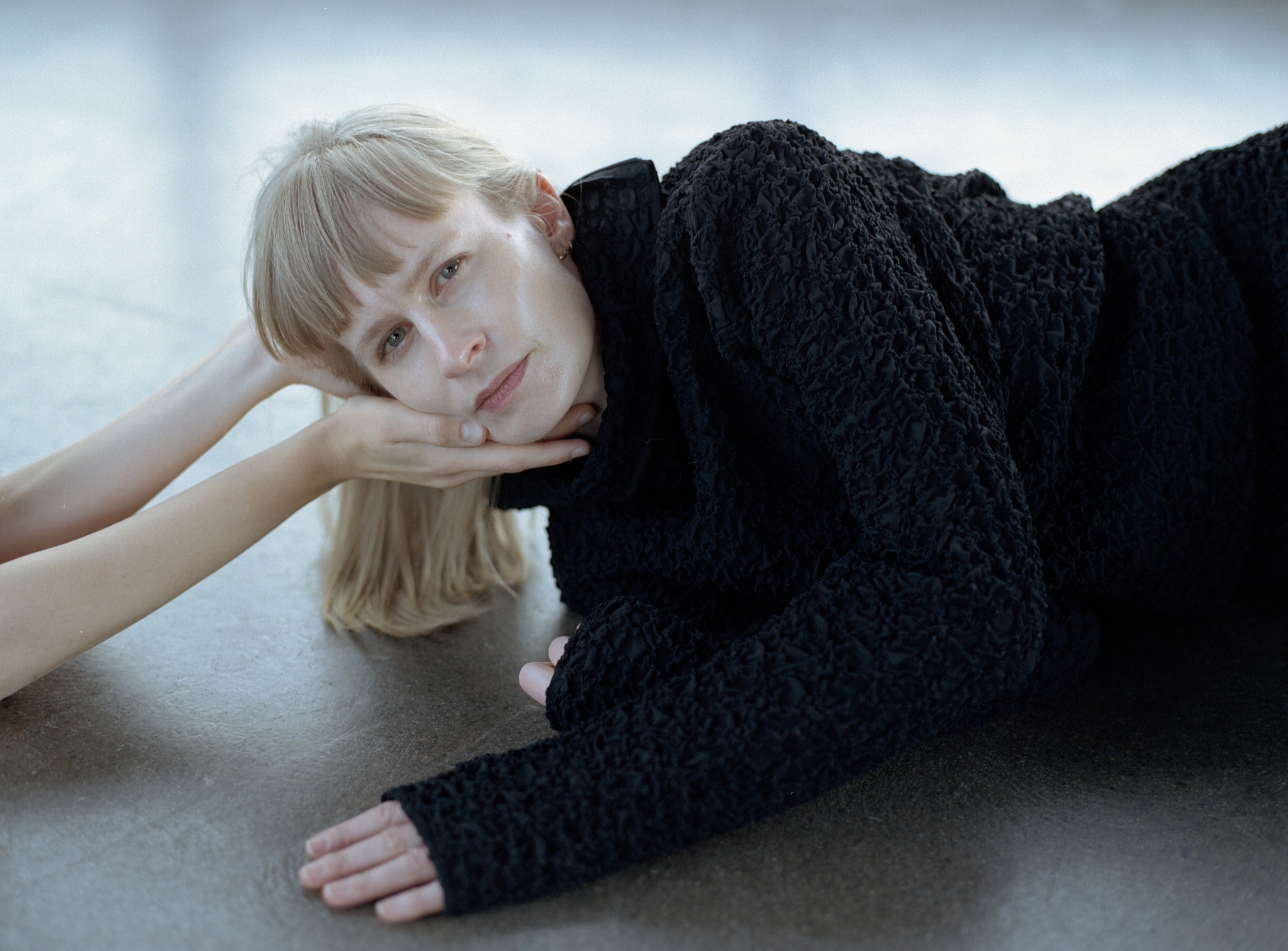

In a perfume shop in Oslo, Emma Aars talks to the musician Jenny Hval about Iris Silver Mist, her scent-inspired new album.
Is Jenny Hval a musician or a writer? Or both? Artist covers it well, and the Norwegian artist moves between sounds and words, often as extensions of each other. She debuted with the album To Sing You Apple Trees in 2006, and has written the novel Paradise Rot (Verso, 2018) and the collection of texts, Girls Against God (2020). Before that, she founded the band Rockettothesky, and in between she has released albums such as Blood Bitch (2016) and Classic Objects (2022). This spring, Hval has both a new album coming out, and Scenemennesket, a book of essays on music in her native language.
There is, however, a third element that ties her most recent works together: fragrance. Not only is her album, Iris Silver Mist, is named after the perfume by Serge Lutens, but in her new book, she writes about how music (or the absence of it) became her pathway back into fragrance, a teenage crush she only returned to after the pandemic, a response to the intangible nature of music today. For many, this triad might seem unusual—how to make music sound?—but for somebody who moves so seamlessly between sound and storytelling, combining the notes of perfumes and notes of music should not come as any surprise.
When I meet Jenny in person for the first time, it’s in a perfume shop in Oslo. We might have met here long ago—it even feels like we have—as this is where I worked for years, and where Jenny, too, has spent a lot of time exploring her own interest in smell. Our knowledge about fragrances overlap, while they represent different stories for each of us. Iris Silver Mist holds an absent presence—it’s been discontinued in the shop—but its ghost lingers. Like the ghost in Hamlet, that the scent has been compared to many times, it’s returning with Hval and her new album, where one element sounds like the powdery iris, the next one like silver, the third one like mist, and they all blend into each other into a perfume piece of its own.
With A Rabbit’s Foot, Hval talked about fragrance and language, rice cookers and radio shows, the need for rituals, which—not unlike concerts—rely on physical experience.
Emma Aars: Tell me about your new album, Iris Silver Mist. What it’s about, and how it came to be?
Jenny Hval: It actually started with radio. I started composing some demos late in 2022, and I wanted them to feel like a kind of mixtape—like tuning into a radio station late at night and not quite knowing what you’re listening to. I wanted to create a dreamlike flow, something drifting between melodic pieces and more abstract soundscapes. At the same time, I was invited to contribute audio to some radio and podcast projects, so I kept working with certain sounds in more abstract contexts over the following months—isolated tracks, a synth here and there, a chime, a bell-like melody or a monologue. I also made a little radio piece for The Lake Radio in Denmark, which I thought of as a tiny sound-theatre performance.
Then I returned to the songs, but I held onto the idea of flow. I wanted to make an interdisciplinary performance where many of the elements could shift and drift—so that sense of songs and pieces bleeding into each other remained. Together with my band, I created the performance I want to be a machine in 2023 and 2024 [which was performed at the Barbican in April 2024], and in it, several of the songs transitioned into one another, either through a musical flow that transformed one idea into the next, or through extensive stage re-rigging.
We had multiple instruments on stage that could be moved and swapped. We also used scent on stage, through diffusers that released botanical smells into the space, rice cookers simmering with things like ambrette and synthetic violet oil, and a potent ambergris concoction under a bell jar that we lifted and wafted into the audience toward the end of the performance. The idea was to drift between musical pieces and various smells… and we tried a bit of the same visually using a couple of those creepy AI programs that transform images. If there was a “machine” in the Machine performance, it was definitely seasick.
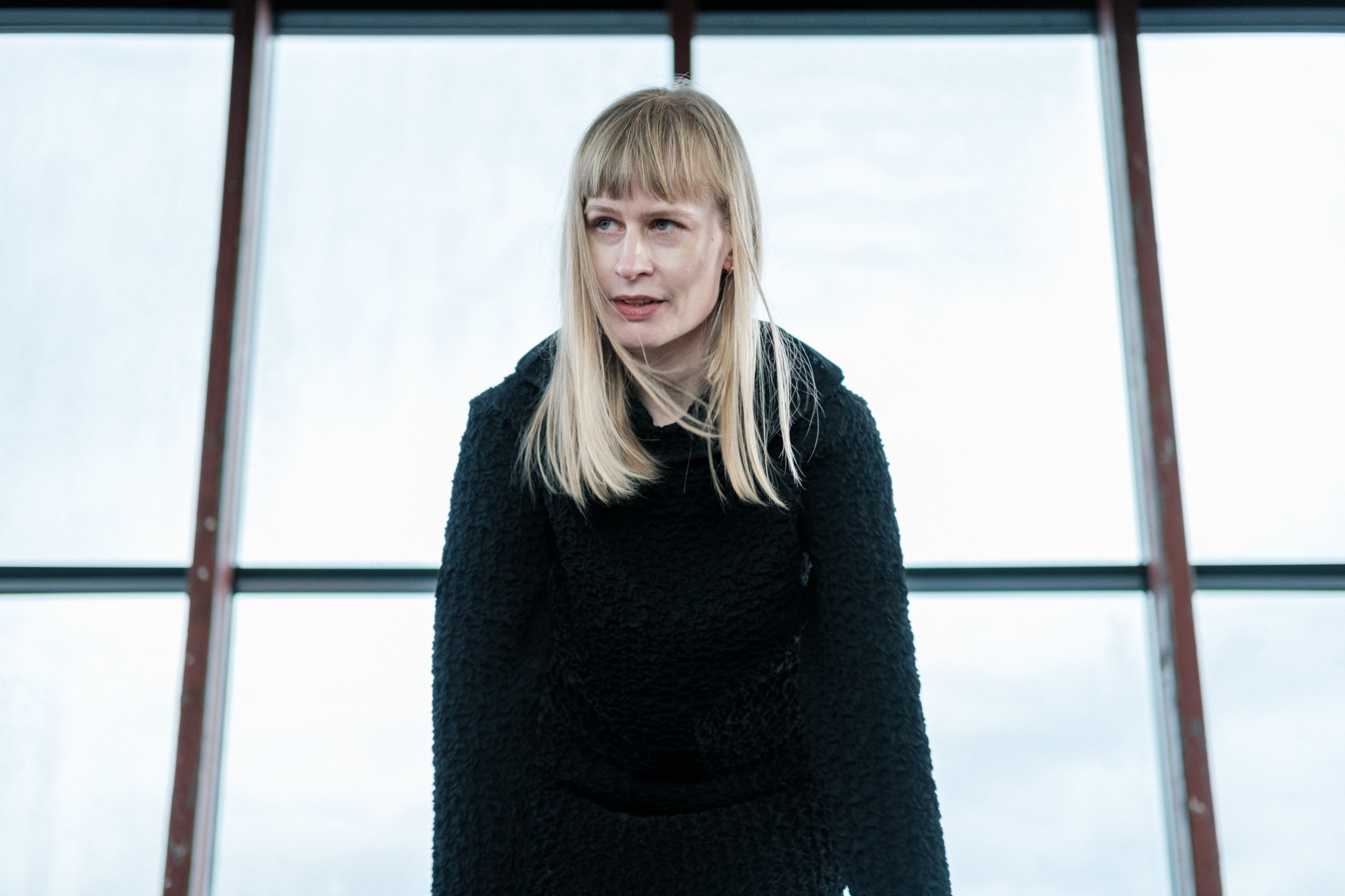
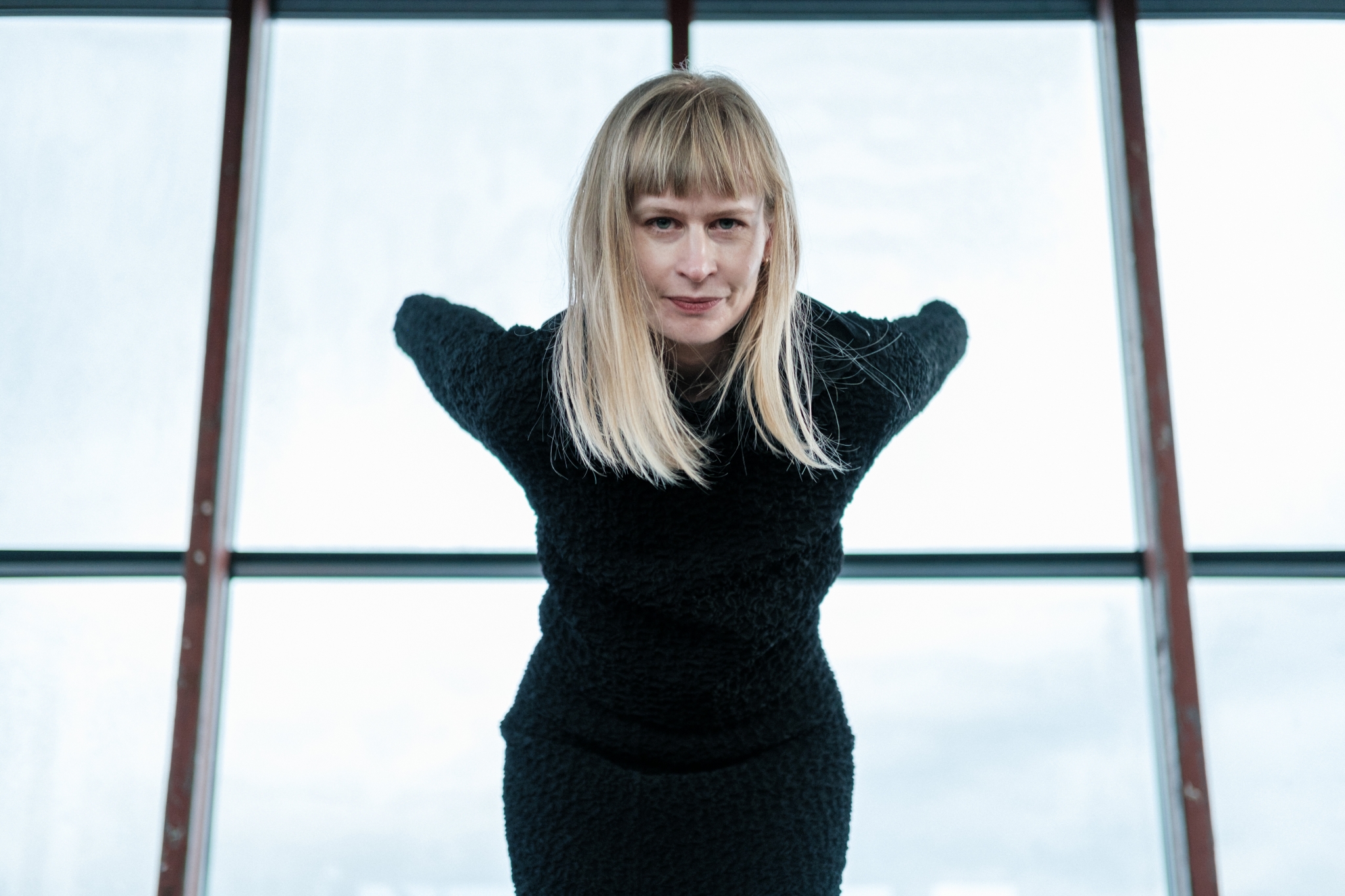
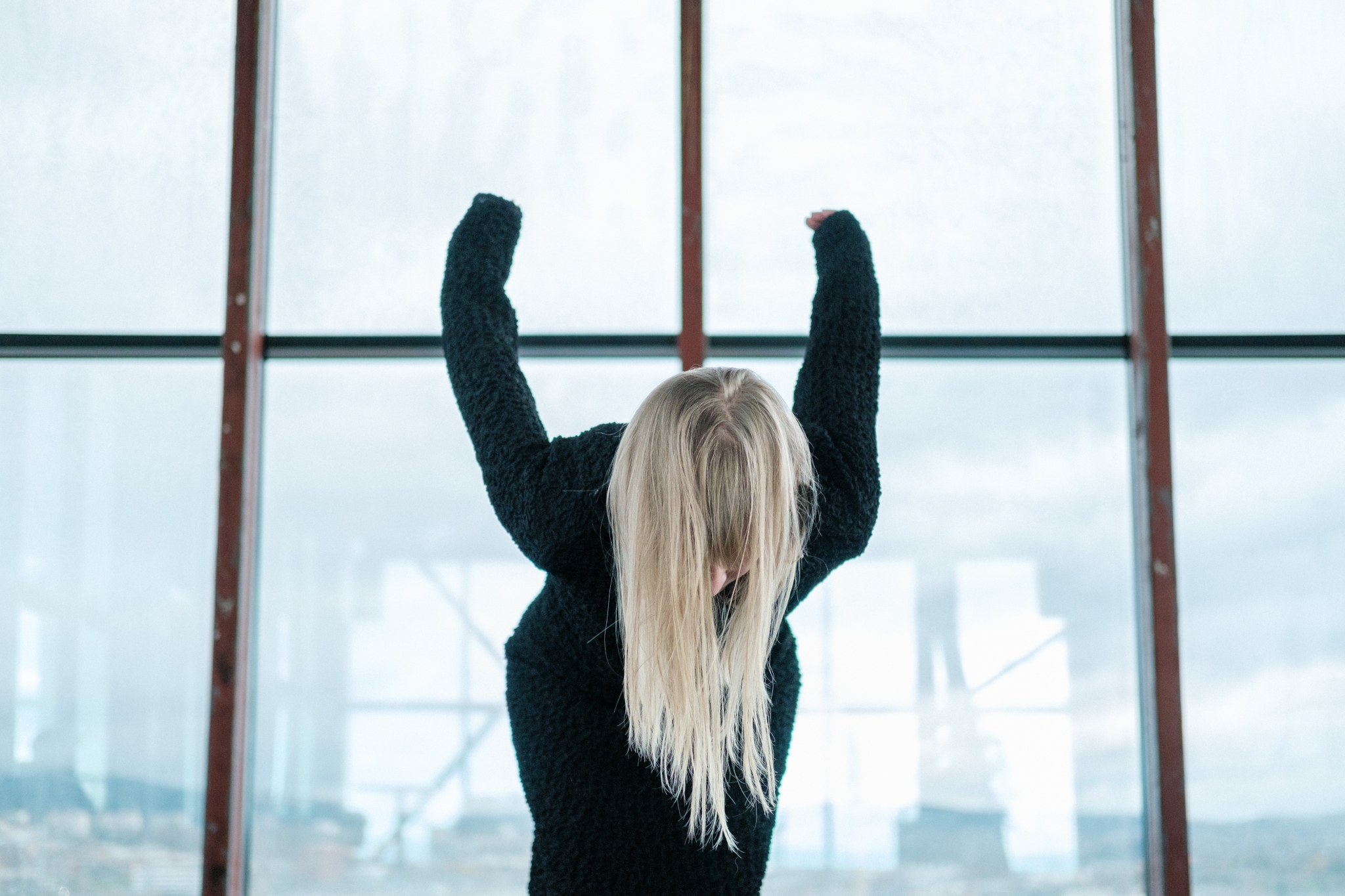
EA: And the record is based on that performance?
JH: Yes, but it also goes a step further… a couple of the songs were written after the performance, in the final stretch of writing my latest book, which I was working on at the same time as the music. Together, it’s become a kind of late-night radio essay about the art and industry of performing. The album took a long time to write, and there’s a lot of reflection packed into the material—reflections on what it means to be human, what the senses are, what it means to be on stage… and how we can talk about or listen to music as art. Iris Silver Mist was the only thing I could come up with to describe the project in the end, even though that’s already a very distinct work [red. a perfume by Serge Lutens]. It’s mysterious, it’s a portal between life and death, reality and fantasy, and it sort of shimmers or flickers between those poles.
EA: You told me your interest in fragrance emerged during the pandemic. Can you tell me how it came about, and how scent influenced your album?
JH: It actually started after the pandemic. I was on tour in 2022, and one of my bandmates wanted to visit a niche perfume store in Stockholm, so I came along. Although I didn’t find a particular fragrance that I loved—it was too much, honestly, a pretty intense experience—something just clicked. I got obsessed, but it wasn’t about discovering a signature scent. I became obsessed with the physical experience of smelling artistic compositions. I think I had become a bit disillusioned with music as it became less and less physical. First CDs disappeared, then streaming took over, and during the pandemic even concerts vanished. And they haven’t fully come back.
EA: Do you think that’s what happened with music? That you felt something was missing—something you couldn’t put into words—and scent gave you a way back to that wordless experience?
JH: Yeah, maybe I was longing for something more intuitive. I remember when I released my album Blood Bitch in 2016—I must’ve done a hundred interviews. Of course, it feels like a privilege to be interviewed, but I got so exhausted from the sheer volume of it. One after the other—always new people, all of them probably lovely—but I think talking so much about music contradicted the more wordless relationship I have with it. I think that’s part of why scent drew me in—it felt like a return to feeling something. A discovery. Almost a spiritual experience. So I think that’s part of why this longing for something physical has stuck with me.
EA: Perfume demands a physical experience.
JH: Exactly. I think we need rituals. And physicality is a huge part of that. On the Classic Objects US tour in 2022, I went to Scent Bar in New York, and that’s where I found the first perfume I really loved—Kyoto, by Comme des Garçons. The brand opened me up to a different fragrance world. The idea that perfume could be something more. Even if that’s a more common thought now, it was a revelation for me.
No, I actually thought it was kind of embarrassing. I didn’t understand why I was so obsessed—why I couldn’t stop reading about perfume. But I kept going. I almost got drunk on it. Maybe I still am. So maybe I’m not the most reliable narrator! But it’s so lovely to be completely taken by something—and to have a hobby. I don’t know everything about the perfume world, and I haven’t fully figured out what I like either—and I hope I never do. It’s the surprise that’s intoxicating. That chase.
EA: Did you know right away you wanted to bring scent into your music?
JH: I think I also got into it because I had been involved in a music scene for many years that was quite masculine and considered anything beauty-related as uninteresting. Not many people around me were into anything considered “vain” or the whole aesthetic world of perfume. It was seen as superficial, something not worth engaging with. I remember playing concerts in Oslo 15-20 years ago when everyone was performing in wool sweaters. No one wore costumes on stage, no one wanted to pretend to be something different. It was all about “authenticity”—but then everyone looked the same. Looking back, it’s kind of funny. When I was even younger, in my teens, I was very drawn to perfume.
EA: Did that experience with perfume shape how you approached your new album? Not necessarily in terms of specific scents, but in that sense of exploration and surprise you describe?
JH: Absolutely. Surprise is becoming less and less available. Everything feels more calculated, more predictable. Even in perfume—there are bestsellers, after all. But maybe it’s still possible to avoid the overly calculated in scent. In music, I feel there’s very little surprise left. Everything’s hyper-accessible, and there’s so much material. Not just the music, but all the stuff around it—press releases, artist statements for every song and video.
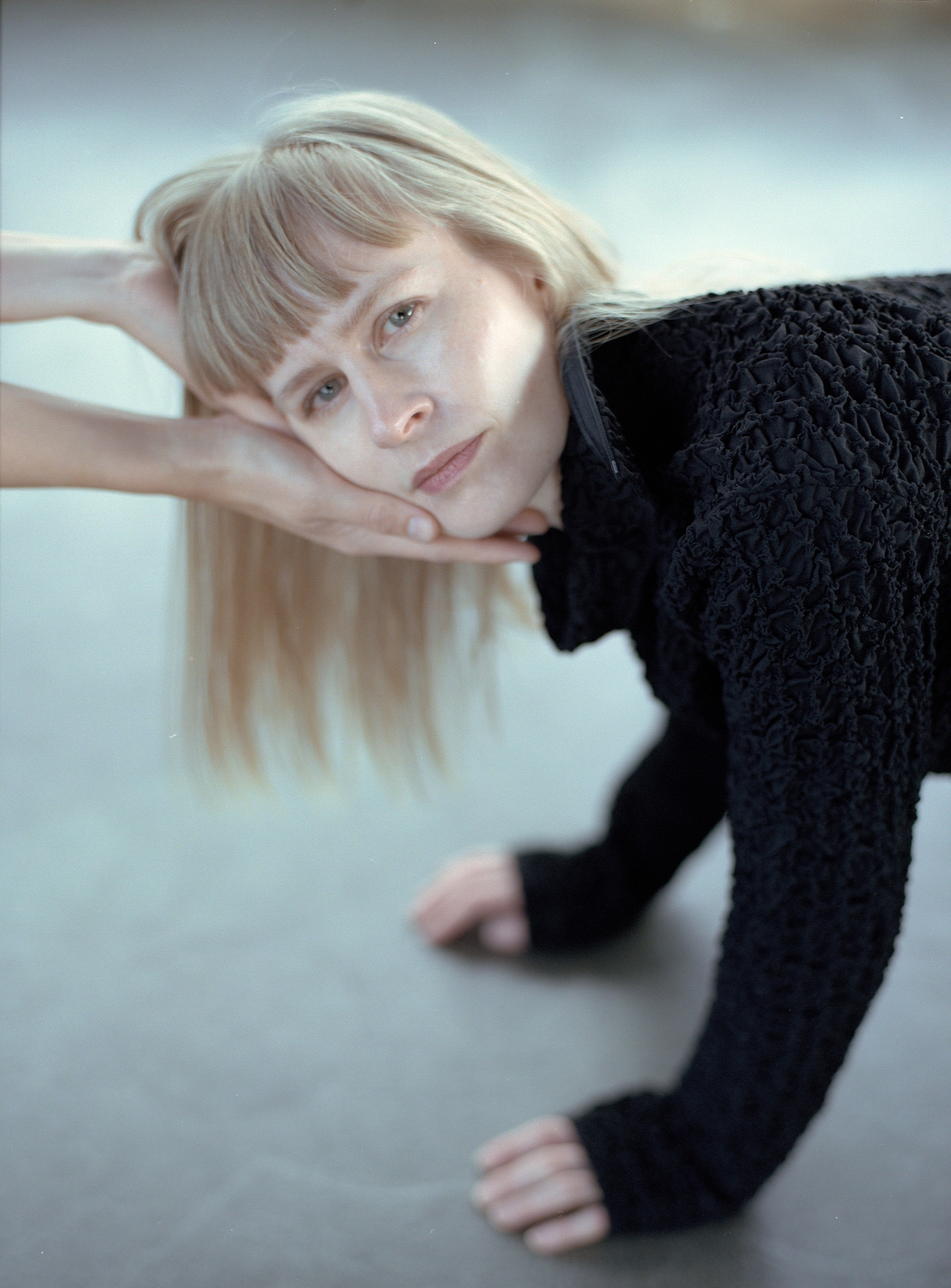
I became obsessed with the physical experience of smelling artistic compositions. I think I had become a bit disillusioned with music as it became less and less physical. First CDs disappeared, then streaming took over, and during the pandemic even concerts vanished. And they haven’t fully come back.
Jenny Hval
EA: So the listener gets a full explanation of everything?
JH: Yes, it’s part of a marketing idea—giving the artist a chance to tell their own story. Which is a nice thought. But it can make the background feel more important than the music itself. And that’s not a great place to be. If we didn’t have the experience of the music, we wouldn’t have anything. I think everyone who makes music knows that.
EA: Same goes for art, I think. It’s not necessarily the most articulate press release that makes for the strongest experience. Sometimes it’s just about seeing.
JH: What matters is pushing the backstory aside. However, I do love a good perfume backstory! But it should support the expression, not turn into a strategy. That’s part of why I love Serge [Lutens]—there’s this vulnerability and autobiography, or at least the illusion of it. Maybe it’s fiction, but it works.
EA: Tell me more about Iris Silver Mist, the fragrance.
JH: I was in Paris last year and finally got to smell it after reading about it. I loved it. I read somewhere that it is like a ghost in Hamlet might wear it—not something Serge Lutens said himself, but it reminded me of the misty fog in Ronja the Robber’s Daughter [red. the children’s book by Astrid Lindgren]. The language around Lutens’ perfumes invites you to recall your own vulnerabilities. And the name—Iris Silver Mist—it dissolves reality, drapes itself over the world. You see something else. It’s ghostly but hopeful. Reflective. Maybe the sun reflects in the mist, too.
I thought a lot about iris while working on the album. This powdery, cool scent. There’s a lot of sampled orchestral music on it, which has air and breath. The sound of a violin bow scraping a string—that kind of friction made me think of powder, of silver. I associate silver with vocal tone. When you use delay effects, you get that shimmering tone—something ethereal. When I sing, I become a slightly different person. I use my body differently. I connect with something that isn’t there in everyday life. A ghost version of Jenny. Spirit. That’s the kind of transitional space I feel the album inhabits. To me, Iris Silver Mist became the perfect description of the space around a voice in a recording. I couldn’t find a better title for what I was making, so I had to borrow it.
EA: People know you as both an author and a musician. This spring you’re releasing both an album and a book about music, where both include scent. How do you see the act of writing songs or lyrics versus writing books? Do the musician and the author in you come from the same source, or are they separate processes?
JH: I’ve been asked this a lot, and it’s always been a bit hard to answer, because I mostly feel like music and text are very, very closely connected, even though they’re experienced and conveyed separately. In the process of making this book and this record, it felt natural to bring those two forms—the written, printed word and the recorded sound—even closer than I have before. I’ve been able to do that by making a performance first, where I worked with both. And actually also by getting interested in scent. Bringing in a third element to both writing and sound—with great appetite—gave me a chance to reflect a bit differently on both of my forms of expression.
EA: Do you use perfumes as tools when you’re in the studio? Do you choose certain scents for the days you’re composing music versus writing, or even for different elements of the music?
JH: I work pretty impulsively when I write, and I follow my gut without planning much in advance. At the same time, I’m quite a routine person. For instance, coffee and the smell of coffee (or tea) are really important when I’m working on writing. I haven’t started using scent all that actively beyond that… but I’ve noticed I’ve started to play a little with different scents while I work. Sometimes I’ll have days where I don’t have to meet anyone, and then I might rummage through my sample drawer and put on something really potent… like a costume. But I don’t know if it really affects what I end up writing. We’ll see!
Jenny Hval’s Iris Silver Mist is out now.





